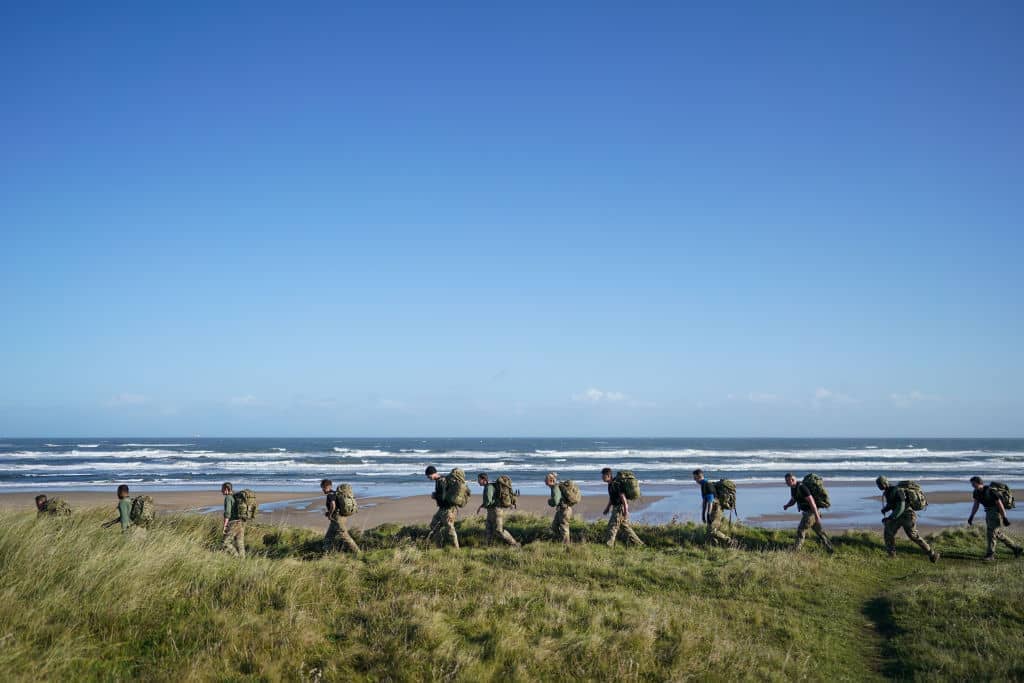What are the armed forces for? This is the question that hangs over every defence review, and one that recent governments have been averse to answering.
The problem is this: since the end of the Cold War, defence has gradually slipped further and further down the political priority list. At the same time, ministers and senior officers have been reluctant to publicly scale back their ambitions for what the military should do.
As a result, instead of making decisive cuts to certain capacities in order to maintain others, we have gradually shrunk all the services to the point where they face serious operational difficulties.
Britain boasts two aircraft carriers, for example, yet lacks the support ships to put two (or perhaps even one) full carrier groups to sea. What use is an aircraft carrier if it can’t be adequately defended? Meanwhile the army has withered to the point where some analysts question whether the UK has even a single division that is theatre-ready.
A fixation on the US has bedevilled the royal navy for years
The latest reforms announced by Ben Wallace may have taken a step towards finally providing an answer to the problem. But we might not like the answer.
At the heart of the reforms, according to media reports, is the aim to ‘transform the army into a more agile, integrated, lethal and expeditionary force’, centred on a new ‘special operations brigade’. This will be backed up with billions of pounds worth of new equipment.
Having a capable, deployment-ready armed forces is obviously a good thing, even if it is the bare minimum we might expect of a country with as strong a military tradition as ours. But there is no escaping the fact that it will be very small. The new Ranger Regiment, for example, is just 1,000 strong.
And although the headlines are about the Defence Secretary saving 500 troops, again welcome, there is no getting away from the fact that these reforms mean another serious fall in the strength of the regular army, from 82,000 troops to 73,000. Only by adding in the reserves (the old territorial army) can the Ministry of Defence get the headcount back over 100,000.
Such a force will be well-suited to small operations. But for all the talk of it being ‘expeditionary’, it could scarcely fight a war on its own. Which suggests that the army is slowly following the trail blazed by the aircraft carriers: becoming a well-equipped, highly-motivated corps of auxiliaries for the American military.
A fixation on the US has bedevilled the royal navy for years. The focus has too often been on ensuring that an individual British warship is as good as its American equivalent, with less attention paid to the fact that Washington (which spends 4 per cent of GDP on defence) can simply afford more of them.
It’s all very well pointing out that a new generation ship packs as much punch as two older models. But the simple fact is that a larger fleet of less sophisticated vessels can operate in more theatres at once. And if most of what you’re doing is combating piracy or conducting freedom of navigation operations, it isn’t obvious what the compensating dividend is of having fewer state-of-the-art ships.
Unless the government wants to start spending much more on defence — and it doesn’t — it should accept that the UK can’t be everywhere and do everything. Especially when our most recent military posture appears to be a pivot towards building alliances in eastern Europe and facing up to the threat posed by Russian territorial ambitions.
The blunt truth is that in the event of an actual conflict in that theatre, a couple of thousand of even the very best troops, and a few dozen of the very latest tanks, aren’t going to slow Moscow’s forces down very much. Assuming we can even deploy them in time, one complaint levelled at the army’s woeful procurement process is that it ended up neglecting unsexy but vital things such as the specialised trucks needed to transport heavy armour.
It befits an independent nation to have an operationally-independent military. That’s the battle Wallace really needs to fight.






Comments